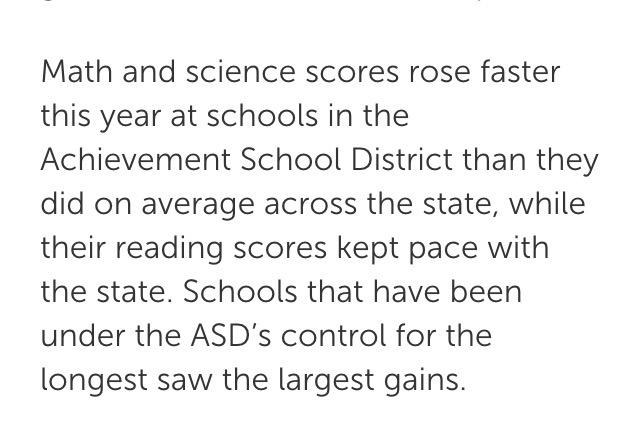In a much anticipated announcement made late on a Friday afternoon, Tennessee’s Achievement School District revealed which charter operators will get to takeover franchises in its growing Nashville market.
Chalkbeat’s Grace Tatter reports:
The Achievement School District has authorized two charter organizations to open schools in Nashville, which remains relatively unchartered territory for the state-run school turnaround district.
District leaders announced Friday that KIPP Nashville and Knowledge Academies will launch their first ASD schools in the 2017-2018 school year.
The expansion news comes on the heels of rather disappointing results from the ASD’s Memphis franchises. Add that to the turnaround posted by MNPS-managed Neely’s Bend Middle, and the ASD had to do something to inject some excitement into an off-season that will see the departure of long-time ASD leaders like Superintendent Chris Barbic and Chief of Staff Elliot Smalley.
Tatter adds that the ASD will go through a community-matching process to pair-up the charter operators with already functioning MNPS schools:
KIPP Nashville and Knowledge Academies will receive community input on which schools they should be matched with in fall 2016.
Of course, the matching process last time around proved to be a rather intense spectator sport. With such heated community involvement, it’s no wonder the ASD wants to bring new operators into the Nashville mix.
Yes, this late Friday announcement is sure to please those fans of ASD’s school-matching cage matches. Parents, teachers, and community members can look forward to exciting matchups between schools competing for the right to possibly be adequately served by a charter operator they didn’t want and no one asked for. Will results improve? Early returns from Memphis say no, but tune-in as the Nashville market becomes the latest testing ground for the ASD’s school competition games.
For more on education politics and policy in Tennessee, follow @TNEdReport
